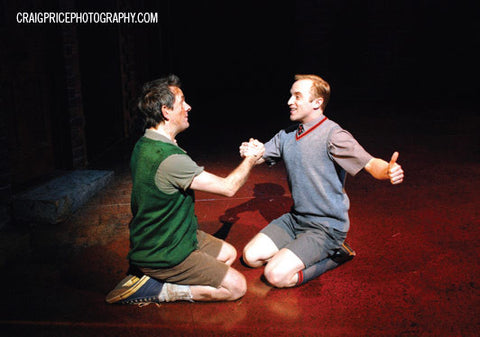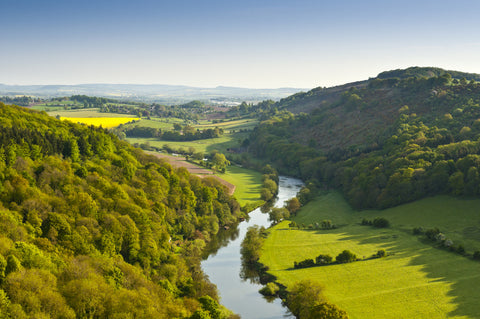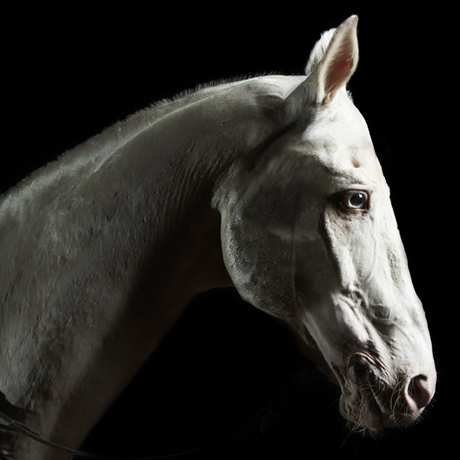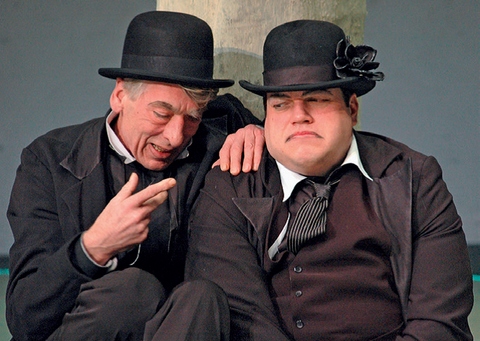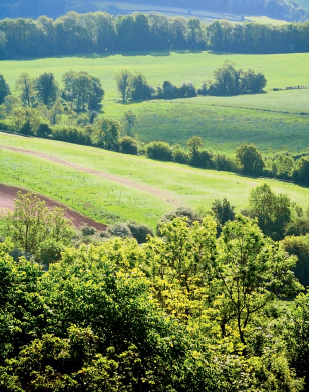
Exploring play texts: Blue Remembered Hills by Dennis Potter
£14.95
Edexcel Unit 2 requires students to explore a full play text through a six hour practical workshop. Choosing a text that is both challenging for higher level students and accessible to weaker students is difficult as you want the work to stretch all students to achieve their best.
Blue Remembered Hills by Dennis Potter has often been a popular choice by schools as it offers a range of techniques, an historical context, serious subject matter and humorous character exchanges. This is why I think this well-liked play is perfect for Unit 2 at GCSE. My students have always enjoyed studying it and it offers a wide range of performance challenges to all levels of ability.
As Unit 2 is shorter than Unit 1 (the documentary response in Unit 2 is only 1,000 words, whereas Unit 1 is 2,000 words), I teach Unit 2 first, completing this scheme of work by the end of Year 10. This is a very accessible scheme of work that is well suited to Year 10 students. It also means that when students approach Unit 1 in Year 11 they feel more confident in writing a documentary response that is double the length.
This scheme of work will help your students to incorporate the range of explorative strategies, mediums and elements that they have already explored during their introductory programme of study and ask them to analyse their effectiveness in performance. Students will also start to learn how to write about the effectiveness of these strategies and analyse their practical work for the written documentary response that is required.
The specification states that you must complete a ‘six hour practical workshop’. It is up to you whether you complete this in one go, or split it up into six hour-long sessions. I do the latter, as I feel it gives my students more breathing time in between each session to evaluate their work and make effective notes. All of the sessions must be filmed. As it is sometimes difficult to tell who is who on a video, to make the moderator’s life easier, I get my students to wear different coloured t-shirts. This makes it much easier when you are identifying students on the moderation marking sheet, as you simply need to write: male student, yellow t-shirt, for example.
Students are encouraged to contribute fully during the practical workshop and must be reminded that they are being assessed during every filmed session. My students often find the idea of performing during a filmed workshop very daunting. Once the camera is on and they get into the flow of it, they relax and can produce great work. It is important to remind them that they must be showing evidence of good group work, listening skills, use of dramatic vocabulary and excellent participation throughout if they want to access high marks.
Make sure that for homework students write up what they did in their practical sessions as they go along. This makes the documentary response write up so much easier as they do not have to rely solely on memory. Making detailed notes about how and why a piece of practical work was effective will be a useful tool to gain good marks. Discourage them from writing simply about what they did, but analyse why and how it worked in performance. Before putting the camera on to film students, read the play in full in class. Set them some research homework into the context of Britain during the War in 1943. Although the specification states a certain number of explorative strategies to use, you will see that this scheme covers a wider range than is stated. I think students enjoy using these strategies and it gives them more to write about in their documentary response.
Number of lessons: 6

